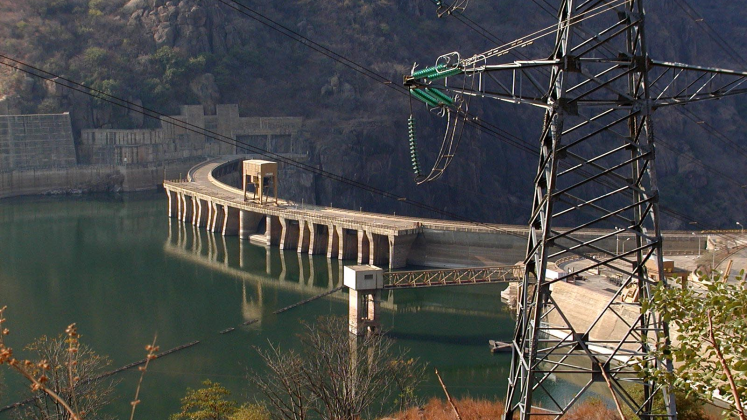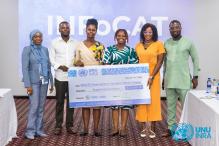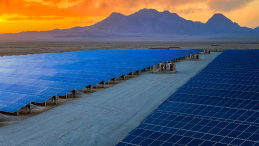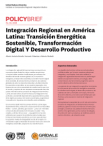Carlino, A., Wildemeersch, M., Chawanda, C. J., Giuliani, M., Sterl, S., Thiery, W., van Griensven, A., Madani, K., Castelletti, A. (2023). Doubling down on African hydropower might lock investments in inefficient and risky infrastructure, United Nations University Institute for Water, Environment and Health (UNU-INWEH), doi:10.53328/INP23AAC01
Download the policy brief
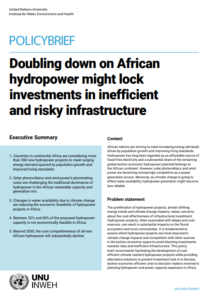
African nations are striving to meet increasing energy demands driven by population growth and improving living standards. Hydropower has long been regarded as an affordable source of fossil-free electricity and a substantial share of the remaining global techno-economic hydropower potential belongs to the African continent. However, solar photovoltaics and wind power are becoming increasingly competitive as a power generation source. Moreover, as climate change is going to affect water availability, hydropower generation might become less reliable.
The proliferation of hydropower projects, amidst shifting energy trends and climate change impacts, raises concerns about the cost-effectiveness of infrastructural investment. Hydropower projects, often associated with delays and cost overruns, can result in substantial impacts on the fluvial ecosystem and local communities. It is fundamental to assess which hydropower projects are most exposed to climate change impacts and competition with other sources in the techno-economic space to avoid directing investments towards risky and inefficient infrastructure.
This policy brief recommends facilitating the development of cost-efficient climate-resilient hydropower projects while providing alternative solutions to prevent investment lock-in in the less techno-economic efficient ones to decision-makers involved in planning hydropower and power capacity expansion in Africa.
Suggested citation: "Doubling Down on African Hydropower Might Lock Investments in Inefficient and Risky Infrastructure," United Nations University, UNU-INWEH, 2023-11-24, https://unu.edu/inweh/article/doubling-down-african-hydropower-might-lock-investments-inefficient-and-risky.

